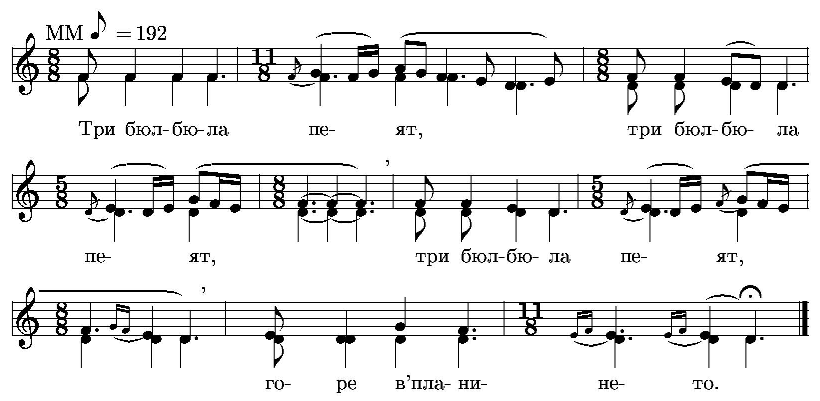Problems and achievements in the digitalization of Bulgarian folklore musicNikolay KirovInstitute of Mathematics and Informatics - BAS http://www.math.bas.bg/~nkirov Abstract.
|
|
|
Overview of music archives |
| Hosted by the SunSITE server at the University of Aalborg, Denmark.
Werner Icking founded the GMD Music Archive of scores, software, email, and other music related items, and diligently maintained it for the benefit of any Internet traveler who might happen by free sheet music archives. It contains ready-to-print sheet music, most in the form of PDF files. Now this archive contains over 200 composers and is open for adding new composers and items. This is the definitive archive of software related to MusiXTeX, a music typesetting system based on TeX. |
| Virtual Sheet Music is a music oriented website which distributes classical sheet music on the Web for immediate purchase and download to musicians and music lovers. The desired music can be downloaded from the website directly to the user's home computer, and subsequently displayed and/or printed. The sheet format is pdf and it produces the high quality printout. |
| A small site contains Popular chinese music, World classic, Japanese music, Movie themes, Western music. All the sheets are jpeg pages, directly scanned from paper sources. |
| Garrett Hope maintains a small database of traditional and folk songs.
Due to the nature of public domain he posts these songs so that they can
be viewed, played, downloaded, and printed for free. The database now contains
folk songs from America, Austria, Canada, England, France, Germany, Ireland,
Norway, Scotland, Switzerland, Tyrol and Wales. The samples are offered
in two formats: Scorch and Bitmap.
Scorch is a free, unique and original browser plug-in developed by Sibelius. Scorch allows the surfer to view, listen to, transpose, and print the displayed music. |
| Free-scores.com is a directory of free sheet music and MP3 on the web,
and also featured sheet music to buy in the store section. 1202 Free sheet
music sites in the directory, classified mainly by instruments.
20th place for Balkanfolk.com (8/13/2003). |
| MusiXTeX is a set of macros and fonts that enables the system TeX to
typeset polyphonic, orchestral and vocal music. It is still under continuing
development.
Usually TeX source files are typeset as texts with some control sequences, used mainly for the presentation of formulas. But MusiXTeX source files are filled with macros to type musical marks, and they look so complicated that many people hesitate at a glance. MusiXTeX is not so easy, that's true. But once mastered, one can produce scores of no less quality than the ones on market. To simplify inputting instrumental music there is the preprocessor PMX, which creates a TeX input file. For vocal music, there is M-Tx, a preprocessor for PMX. These methods are used in Werner Icking Music Archive and there is a detailed documentation [6a] for the methods implementation. |
| Note Editor is an editor for music notation that supports an unlimited number of staffs and up to 9 voices per staff. The import formats are MIDI files, recorded from MIDI keyboards and TSE3. The export formats are MusiXTeX, LilyPond, PMX, MUP, and TSE3. |
| There is a lot of software for digitalization and presentation music.
Let us describe briefly Sibelius - complex music notation software.
The main features of Sibelius are: creating music, composing and arranging, playback, page layout and part extraction, publishing and Internet publishing. - Creating music. - Composing and arranging. - Playback. - Page layout and part extraction; Publishing and Internet publishing. Scorch Sibelius Scorch is a free web browser plug-in that lets play, transpose, change instruments, save and print Sibelius scores on the Internet. PhotoScore The PhotoScore family of products allow to scan printed music into computer. One can then play it back, transpose it or edit it. |
| The project WebFolk.BG is a result of over 5 years work, realized by a research team under the conduction of Dr. Lubomir Kavaldjiev at the Institute for Art Studies - Bulgarian Academy of Sciences. It contains Multimedia Database for Authentic Bulgarian Musical Folklore - over 8000 records including text (both lyrics and analytical data), audio (MP3), notes, photos (GIF) and video material (RM) in Bulgarian folk music. Some records include scores, directly scanned from paper sources. There is also Search engine with good possibilities for searching by all indicators - fields in the database record. |
| Folk music and folk songs chart. There are free audio samples in MP3
or RA formats, also free notes (sheet music) for some songs in PDF and
GIF files.
It takes 20th place in Free-scores.com (8/13/2003). |
| The site contains data about Bulgarian folklore instruments with sound samples in MP3 files. Some books concerning Bulgarian folklore music are announced. For example Anthology of Bulgarian folk musicians contains scores of some songs. |
| The database and website are granted by the National foundation "Cultura". It includes 47 authentic danceable melodies (horo) described by prof. Ilia Manolov. 21 of them have full records audio files in MP3 and WMA formats. |

This article can be seen at: http://www.math.bas.bg/~nkirov/2003/digit/index.html
(Revised version 2004-01-05)